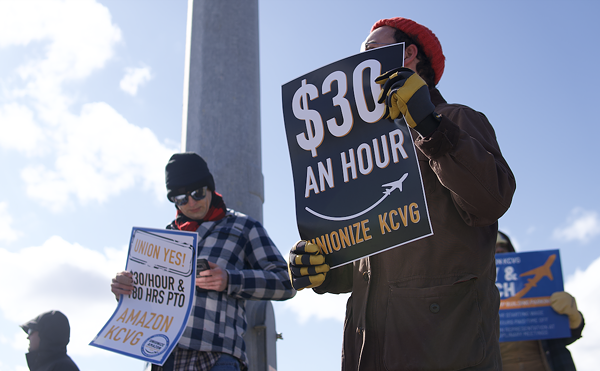Just before he was to be shot, a Bosnian man in Croatia wrestled away from his captor, jumped a fence and, without money or passport, made it across five international boundaries to find safety in Austria.
But he found a home in Cincinnati.
The stories vary, but they don't stop coming: 53 refugees resettled in the Greater Cincinnati area just this year, according to Rod Huber, who oversees a refugee resettlement program as director of family services for Catholic Social Services of Southwestern Ohio.
A refugee is a person who has fled his or her country of origin because of a well-founded fear of persecution. Between 1975 and 1995 the resettlement project helped about 12,000 Vietnamese resettle in southwestern Ohio, Huber says.
Lately refugees fleeing civil wars are pouring in from Africa.
"We get some real horror stories," Huber says. "Many times they've seen family killed in front of them."
When they arrive, they often step off the plane with nothing more than a suitcase, says James Buchanan, director of Xavier University's Brueggeman Center for Dialogue.
"It's like the people who landed in Ellis Island," he says.
He says the U.S. government gives them some money to get started. Then there's housing and jobs to find and kids to put in school and citizenship paperwork to fill out and, of course, language barriers tripping it all up. Which means health is an afterthought until problems become acute.
For years Huber's program and Jewish Family Services have been the the principal organizations resettling refugees in the area, he says. The more recent founding of the International Center of Greater Cincinnati by 1999 Xavier grad Natalie Fair-Albright has bolstered local resources for refugees.
But Buchanan hopes it's just the beginning of a network of people and agencies that will collude to assist local refugees as they adjust to life outside their home countries.
To that end, XU hosts a community forum on "How to make Cincinnati a friendly and prosperous city for immigrants" from 9 a.m.-4 p.m. Sunday at the Schiff Family Conference Center at the Cintas Center.
Then at 7 p.m. Tuesday in the Schiff Center, Xavier presents Ken Bacon, president of Refugees International (www.refugeesinternational.org), giving a speech called "Advocacy for Change: Refugees and Rebels."
The forum is the first of what Buchanan plans to be a yearly gathering of refugees and the many people and agencies providing them services. Right now he's trying to align Xavier's "considerable resources" with the refugee services already in existence and perhaps draw in other organizations, such as the National Underground Railroad Freedom Center. He's also planning a resource book and Web site.
But the first step is getting the word out, both to refugees and to those ignorant of their existence locally.
"I think the first thing that we need to do is to become aware that here's a population that's living in our midst," Buchanan says. "They are our fellow Cincinnatians now. We need to make an effort to find out who they are, what they're doing, how they're doing and how we can help them."
There are ways the community at large could help, Huber says.
"We certainly need volunteers to help resettle people," he says. "We need an openness to diversity in the community, which I think is a biggie."
And people need to lose the idea that all immigrants are undocumented and some kind of threat, he says.
The refugee problem is not a passing issue. There are more than 30 million refugees worldwide right now, and many are still stuck in the countries persecuting them.
All The News That Fits: Leads, entrails and tales we couldn't get to.





